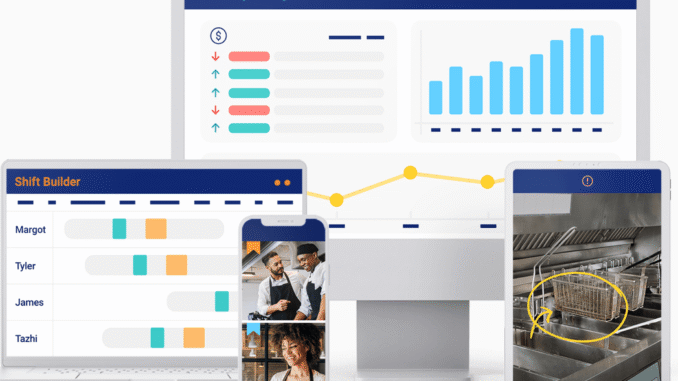
By Lea Mira, RTN staff writer - 6.11.2025
Crunchtime Information Systems and QSR Automations have confirmed plans to merge, creating a comprehensive restaurant technology provider that spans the entire lifecycle of food service—from ingredient ordering through kitchen execution.
Founded in 1995, Crunchtime built its platform to help operators cut food and labor costs with tools for inventory control, AI-driven forecasting, labor scheduling, training, and operational audits across a global client base of over 750 brands and 150,000 locations. QSR Automations, established in 1996 and based in Louisville, Kentucky, has earned a reputation for its ConnectSmart kitchen display systems and digital recipe management, now deployed in 21 of the top 25 casual dining chains.
Headquartered out of Boston, with offices stretching from Guadalajara to Melbourne, Crunchtime serves enterprise customers like Chipotle, Dunkin’, Five Guys, Domino’s and McDonald’s. QSR, now under the majority growth investment of Battery Ventures since late 2024, complements this with real-time kitchen order routing and display technology aimed at improving order accuracy and workflow efficiency. The convergence is anticipated to serve more than 800 brands across 150,000+ locations in over 100 countries
Crunchtime CEO John Raguin, who took the helm in 2023, will lead the combined organization. He explained that merging QSR’s kitchen display and routing software with Crunchtime’s forecasting, prep, and analytics tools should improve speed of service and quality while reducing food waste. Company insiders from Crunchtime’s early scrappy startup phase highlighted the challenge of maintaining agility and reliability at scale—but acknowledged that previous acquisitions, including DiscoverLink and Zenput, helped broaden their operations platform.
This move reflects a growing wave of consolidation in the restaurant tech sector. This week, for example, PAR Technology launched its Engagement Cloud, folding marketing, loyalty, ordering, and guest data into a single suite. Meanwhile, enterprise-level providers like Toast and Oracle have advanced broader platforms encompassing POS, inventory, and analytics. Private equity-driven roll-ups in the segment—such as Zuul’s takeover of a kitchen solution in early 2025—underscore the strategic importance of integrated capabilities.
The resulting platform promises restaurants unified control over shift-level inventory, back-of-house prep, staff training, and guest-facing execution. Its potential impact spans cost reduction, consistency enhancement, and compliance management. Yet success depends on tightly woven technical integration—especially around APIs and UX harmonization—and on retaining the operational culture that built Crunchtime’s initial momentum.
In a sector historically fragmented by siloed point solutions, this merger signals a notable shift toward holistic operational systems. Industry observers will be watching closely over the next 12 to 18 months—particularly how the combined company addresses integration risk, customer transitions, and the delicate balance between scale and responsiveness. If executed effectively, the union of Crunchtime and QSR Automations could set a new standard in restaurant operational intelligence.

